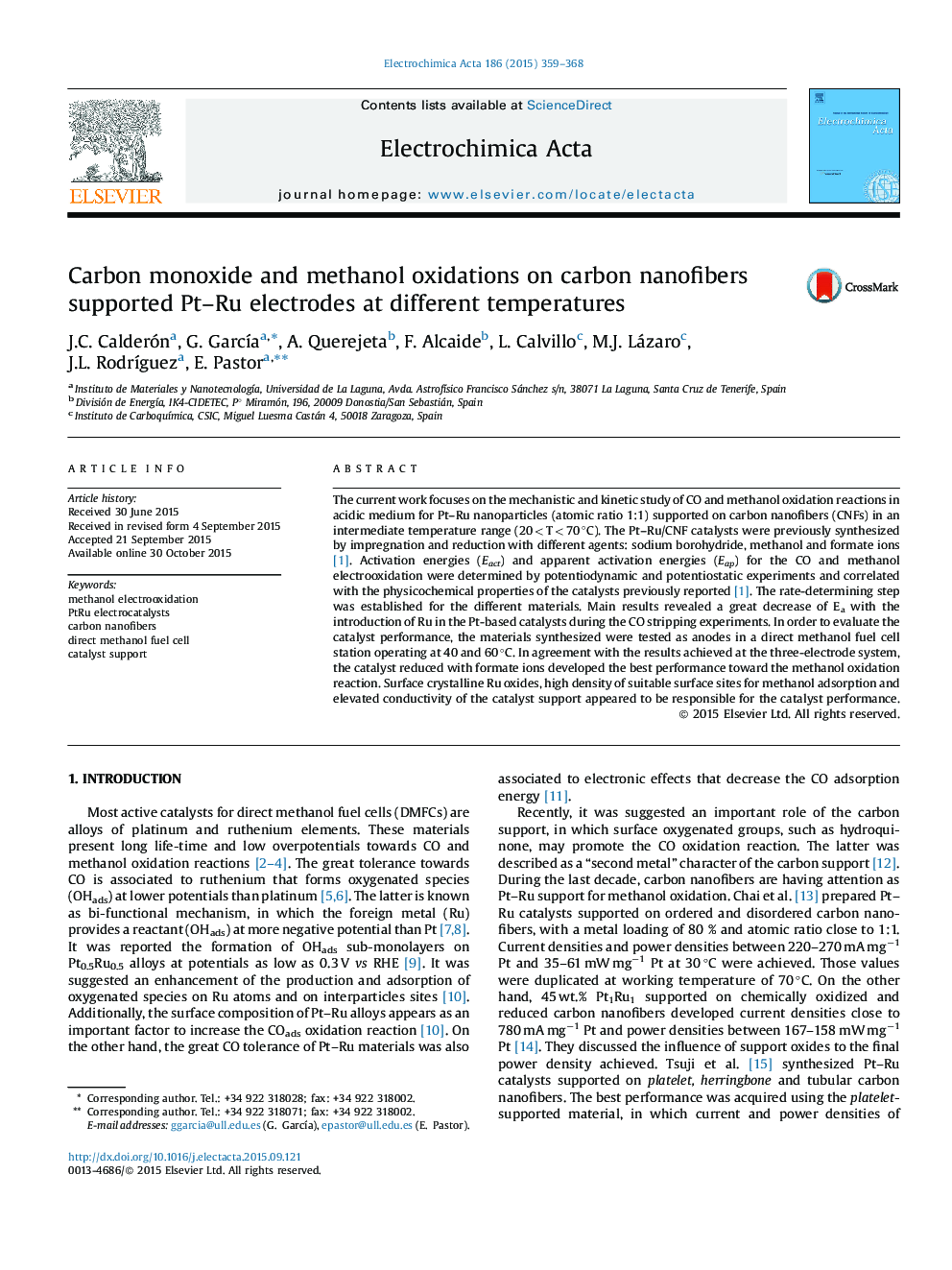| کد مقاله | کد نشریه | سال انتشار | مقاله انگلیسی | نسخه تمام متن |
|---|---|---|---|---|
| 183578 | 459554 | 2015 | 10 صفحه PDF | دانلود رایگان |

• CO and methanol oxidations on Pt–Ru supported on carbon nanofibers were studied.
• CO and methanol activation energies were determined up to 70 °C.
• Ru strongly decreases the activation energy for the CO oxidation reaction.
• The rate-determining step for the methanol oxidation changes at T ≥ 50 °C.
• Catalysts performance in DMFC is enhanced by the carbon nanofibers support.
ABSTRACTThe current work focuses on the mechanistic and kinetic study of CO and methanol oxidation reactions in acidic medium for Pt–Ru nanoparticles (atomic ratio 1:1) supported on carbon nanofibers (CNFs) in an intermediate temperature range (20 < T < 70 °C). The Pt–Ru/CNF catalysts were previously synthesized by impregnation and reduction with different agents: sodium borohydride, methanol and formate ions [1]. Activation energies (Eact) and apparent activation energies (Eap) for the CO and methanol electrooxidation were determined by potentiodynamic and potentiostatic experiments and correlated with the physicochemical properties of the catalysts previously reported [1]. The rate-determining step was established for the different materials. Main results revealed a great decrease of Ea with the introduction of Ru in the Pt-based catalysts during the CO stripping experiments. In order to evaluate the catalyst performance, the materials synthesized were tested as anodes in a direct methanol fuel cell station operating at 40 and 60 °C. In agreement with the results achieved at the three-electrode system, the catalyst reduced with formate ions developed the best performance toward the methanol oxidation reaction. Surface crystalline Ru oxides, high density of suitable surface sites for methanol adsorption and elevated conductivity of the catalyst support appeared to be responsible for the catalyst performance.
Journal: Electrochimica Acta - Volume 186, 20 December 2015, Pages 359–368